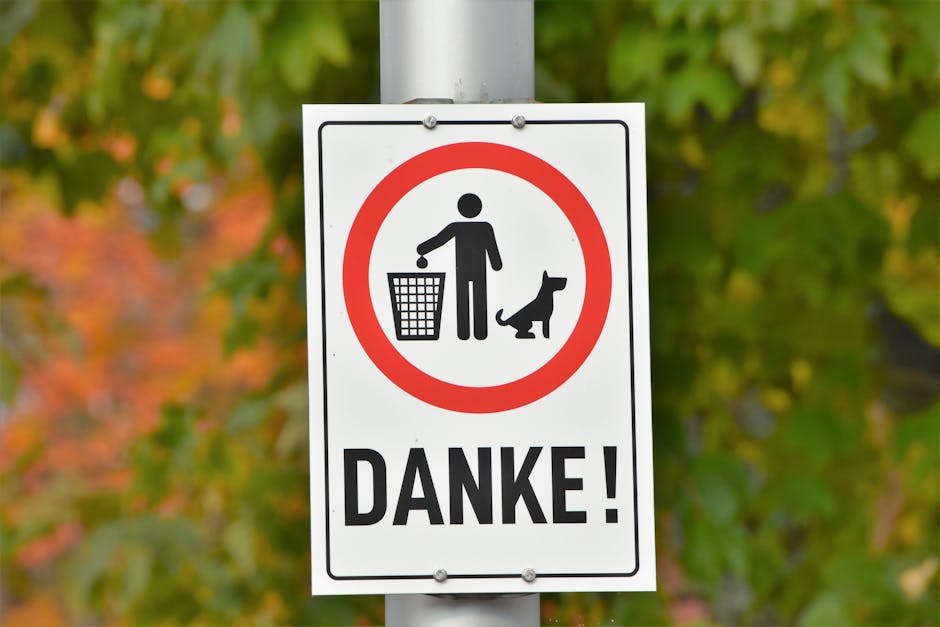
In recent years, Germany has positioned itself as a global leader in recycling and waste management. With stringent regulations and innovative practices, the country has set a benchmark for sustainability. As we advance towards 2025, understanding the key terms in this field becomes essential for those in the education and environmental sectors. This glossary aims to introduce you to the top recycling and waste management terms prevalent in Germany today.
Abfallwirtschaft
The term Abfallwirtschaft refers to waste management practices including the collection, transport, processing, recycling, or disposal of waste materials. In Germany, this is a critical component of environmental policy, ensuring sustainable waste handling.
Recyclinghof
A Recyclinghof is a recycling center where individuals can drop off their recyclable materials. These centers play a crucial role in Germany’s waste management infrastructure by facilitating the proper sorting and recycling of various materials.
Duales System Deutschland (DSD)
The Duales System Deutschland (DSD) is the dual waste management system in Germany that operates alongside the municipal waste systems to facilitate the recycling of packaging materials. DSD is well-known for its Green Dot program, which marks recyclable packaging.
Grüner Punkt
The Grüner Punkt or Green Dot is a symbol found on packaging in Germany indicating that the manufacturer has contributed to the cost of recycling the packaging material. This initiative encourages companies to take responsibility for the environmental impact of their products.
Pfandsystem
Germany’s Pfandsystem is a deposit return system for beverage containers. Consumers pay a deposit on bottles and cans, which is refunded upon return of the empty containers. This system significantly boosts recycling rates for beverage packaging.
Restmüll
Restmüll refers to residual waste that cannot be recycled or composted. In Germany, Restmüll is typically incinerated to generate energy, minimizing landfill use and reducing CO2 emissions.
Bioabfall
Bioabfall stands for organic waste, including kitchen scraps and garden waste. Germany promotes the segregation of bio-waste for composting or anaerobic digestion, converting it into valuable compost or biogas.
Elektroschrott
Elektroschrott, or e-waste, represents discarded electrical and electronic equipment. Germany has stringent regulations for handling e-waste, emphasizing recycling and the recovery of precious metals and other materials.
Kreislaufwirtschaft
The term Kreislaufwirtschaft translates to circular economy, a model focused on minimizing waste and making the most of resources. Germany aims to transition from a linear to a circular economy, reducing dependency on finite resources.
Verpackungsverordnung
The Verpackungsverordnung refers to Germany’s packaging ordinance, which mandates the reduction of packaging waste and promotes recycling. It obligates producers to participate in the financing of packaging waste recycling.
Recyclingquote
Recyclingquote stands for the recycling rate, indicating the proportion of waste recycled out of the total waste generated. Germany boasts one of the highest recycling rates globally, continuously striving for improvement.
Energetische Verwertung
Energetische Verwertung involves the conversion of waste materials into energy, typically through incineration. This practice helps reduce landfill use while providing a sustainable energy source.
Sortieranlage
A Sortieranlage is a sorting facility where waste is separated into recyclable and non-recyclable components. Advanced technologies in these facilities enable efficient sorting and enhance recycling rates.
Recyclingfähige Materialien
Recyclingfähige Materialien are recyclable materials that can be processed and reused in the production of new products. Germany’s focus on identifying and sorting such materials is central to its waste management strategy.
Altpapier
Altpapier, or waste paper, is one of the most recycled materials in Germany. Extensive collection and recycling systems are in place to ensure high levels of paper recovery, conserving trees and reducing water and energy consumption.
FAQ
What is the role of the Duales System Deutschland (DSD) in waste management? The DSD operates alongside municipal systems to manage the recycling of packaging materials through the Green Dot program, promoting sustainable practices.
How does the Pfandsystem contribute to environmental sustainability? By incentivizing the return of beverage containers through a deposit scheme, the Pfandsystem significantly boosts recycling rates and reduces litter.
Why is the Kreislaufwirtschaft important for Germany’s future? The Kreislaufwirtschaft, or circular economy, aims to minimize waste, optimize resource use, and reduce environmental impact, ensuring long-term sustainability in Germany.
What makes Germany’s recycling rate among the highest globally? Germany’s commitment to stringent regulations, innovative recycling systems, and public awareness contribute to its high recycling rates.
How does Energetische Verwertung benefit waste management? Energetische Verwertung reduces landfill use by converting waste into energy, providing a sustainable and efficient solution for waste management.
Conclusion
By understanding these key recycling and waste management terms, international readers can gain deeper insights into Germany’s advanced systems and sustainable practices. Germany’s focus on innovation, regulation, and public engagement ensures that it remains at the forefront of global waste management efforts. As we move towards 2025, these practices not only set a benchmark for environmental sustainability but also offer valuable lessons for other nations striving for greener futures.


